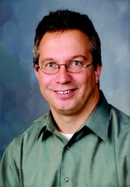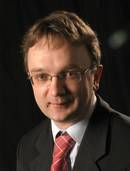Keynotes
Scientific Workflows - Business (Workflows) as Usual?

Prof. Bertram Ludäscher (Ph.D.)
Thursday, 10 September 2009
Short Bio:
Bertram Ludäscher is professor at the Department of Computer Science and a member of the faculty at the UC Davis Genome Center, both at the University of California, Davis. He is currently also a research fellow at the Graduate School for Library and Information Sciences at the University of Illinois at Urbana-Champaign. His research focus includes modeling, design, and optimization of scientific workflows and databases, data and workflow provenance, and knowledge representation and reasoning for scientific workflows and scientific data integration. He is currently involved in several collaborative scientific data and workflow management projects, including the DOE Scientific Data Management (SciDAC/SDM) Center project and NSF projects to develop scientific workflow technology (Kepler-CORE), e.g., for bioinformatics and environmental observatory applications (REAP, COMET). Prof. Ludäscher received his M.S. (Dipl.-Inform.) in Computer Science from the University of Karlsruhe in 1992 and his Ph.D. from the University of Freiburg, Germany in 1998. Until 2004 he was a research scientist at the San Diego Supercomputer Center and an adjunct faculty at the Department of Computer Science and Engineering at UC San Diego.

Prof. Dr. Manfred Reichert
Friday, 11 September 2009
Short Bio:
Manfred Reichert holds a PhD in Computer Science and a Diploma in Mathematics. Since January 2008 he has been appointed as full professor at the University of Ulm. Before he was working as Associate Professor at the University of Twente (UT), The Netherlands. At UT he was also leader of the strategic research orientations on e-health and on service-oriented architectures, and member of the Management Board of the Centre for Telematics and Information Technology (CTIT). His major research interests are next generation process management technology (e.g., adaptive processes, process lifecycle management, process visualization, data-driven workflows), service-oriented architectures (e.g., service interoperability, service evolution), and advanced applications for ICT solutions (e.g., e-health, automotive engineering). Together with Peter Dadam he pioneered the work on the ADEPT process management system. Manfred has been participating in numerous research projects in the BPM area and contributed numerous papers. Further, he has co-organized international and national conferences and workshops. In particular, Manfred was PC-Chair of the BPM’08 conference in Milan and is General Co-Chair of the BPM’09 conference in Ulm.
Abstract:
This keynote reports on a new class of processes - so called fluid processes - whose ”engineering” and ”use” is indistinguishable. Fluid processes are continually being adapted and reformed to fit the actual needs and constraints of the situation in hand and to fulfill the overall goals of the involved actors in the best possible way. We present a detailed review of challenges and techniques that exist for the support of fluid processes. We give insights into their nature, discuss fundamental challenges to be tackled, summarize basic technologies enabling fluid processes at the information system level, and describe advanced applications of fluid processes.
